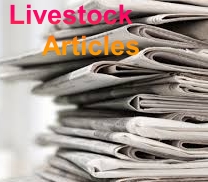Concern about global food security
The agricultural outlook of the organisation for economic co-operation and development and the food and agriculture association (OECD-FAO) for the period 2023-2032 raises concerns about global food security following recent surges in agricultural input prices experienced over the last two years.
Nevertheless, there are reasons to be optimistic if the potential for increased productivity is realised, but this does require a favourable policy environment.
While the impacts of the global COVID-19 pandemic have been largely factored into agricultural markets, the Ukraine-Russia war continues to disrupt and uncertainty. Moreover, the lack of progress in multilateral trade negotiations, increasing protectionist policy stance in many countries, and impacts of diseases and climate change or extreme weather events, heighten these concerns.
According to the outlook, annual projected growth of 1.3% in livestock production will mainly result from improvements in animal productivity, more efficient herd management and higher feed intensity. Upper middle-income countries will drive the growth in global meat production.
Global food consumption is projected to increase by 1.3% annually, a slower pace than the previous decade due to a slowdown in population and per capita income growth. The outlook expects downward pressure on the growth of meat demand amid high and rising consumer costs and weak income growth. It is expected that global average per capita demand for meat will increase by 2% (0.7 kg/ year/person) from the 2020-2022 base period to 2032.
Meat consumption patterns in most high-income countries – which currently represent 33% of total meat consumption for 16% of the global population – have started to stagnate, with changes mostly based on the type and quality of meat consumed. Growth will be generated primarily from low- and middle-income countries. Worldwide, poultry, pig meat, beef, and sheep meat consumption are projected to grow 15%, 11%, 10%, and 15% respectively by 2032.
Global meat trade will likely be dominated by the ongoing reduction in China’s meat imports but is expected to be offset by a growing demand from middle-income countries in Asia that shift toward diets that include higher shares of animal products, and from low-income countries with high population growth.
On the other hand, rising domestic production in several other countries including Iran, Russia, Saudi Arabia, South Africa, Vietnam, and in Latin America, is likely to dampen the growth of their meat imports in the medium term. As a result, the global meat trade will expand by only 0.7% per annum, much slower than in the last decade.
Global meat exports are projected to rise 3% by 2032 from the base period with almost 11% of meat output traded. However, the growth in the meat trade is projected to decelerate compared to the past decade. Developed countries are expected to account for more than half (55%) of global meat exports by 2032, a share which is 3% point lower than in the base period. However, the share of Brazil and the United States, each representing 20%, will remain stable over the projection period.
Source : IMS newsletter, September 2023








